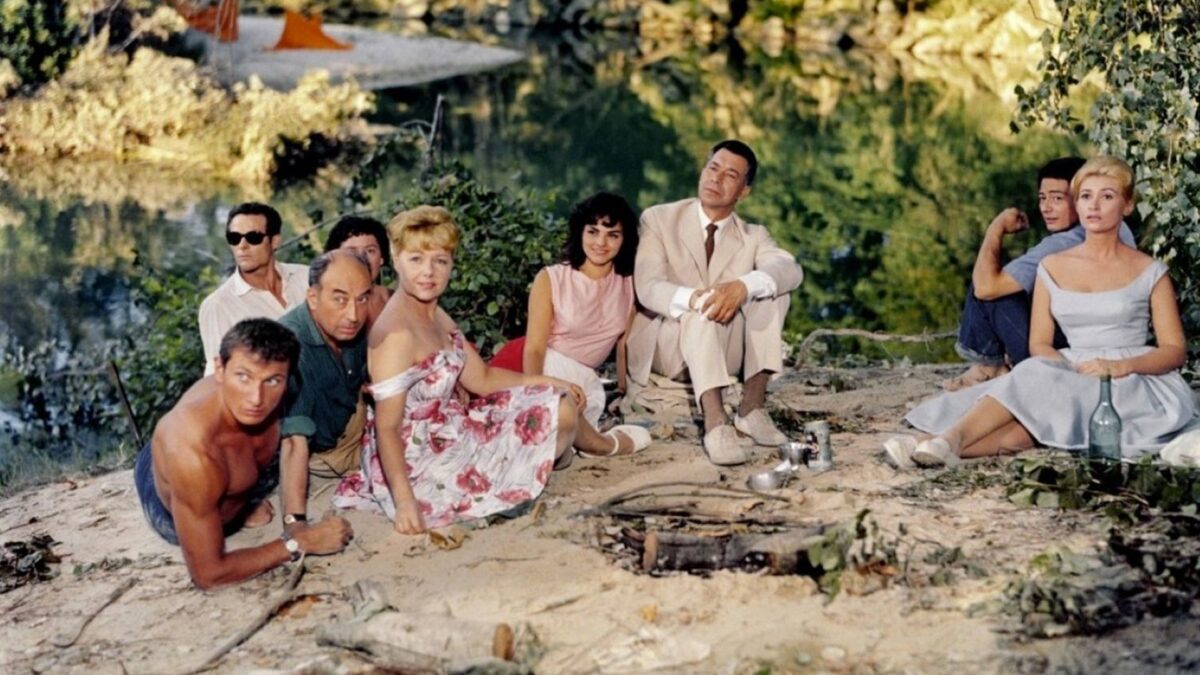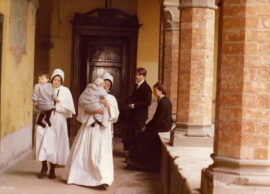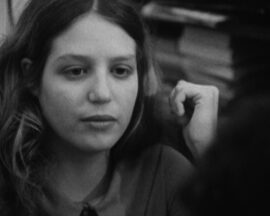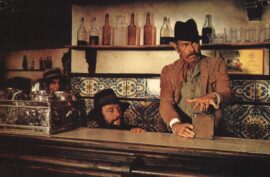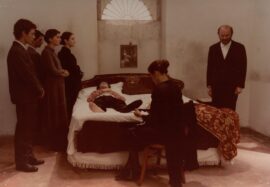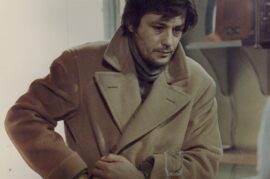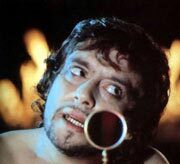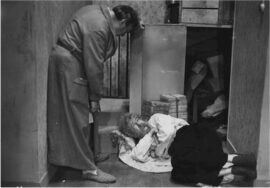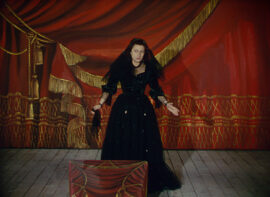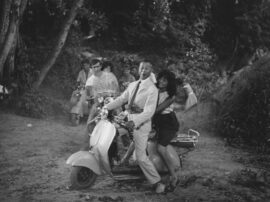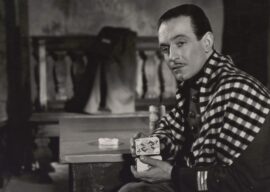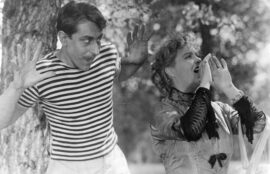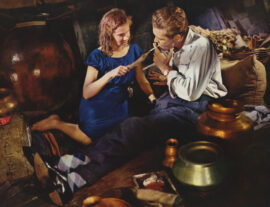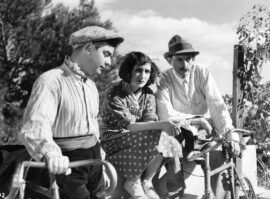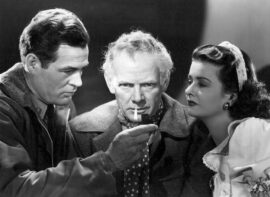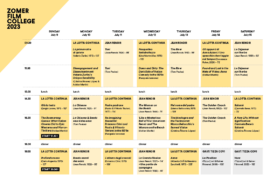
Raadpleeg nu het volledige programma van het Zomerfilmcollege! (pdf)
Check out the complete Zomerfilmcollege programme! (pdf)
Van 9 tot 15 juli verwachten we je opnieuw in Antwerpen voor het Zomerfilmcollege! Zeven dagen lang duiken we onder in twee filmhistorische thema’s, aan de hand van een vijftiental lezingen en zo’n twintig filmvertoningen.
Filmmakers hebben duizenden geheimen, het ZOMERFILMCOLLEGE leert je ze kennen!
LA LOTTA CONTINUA: Italian cinema in the 1970s
Politieke cinema wordt vaak te eng gedefinieerd — gereduceerd tot een directe verbeelding van specifieke sociale kwesties, dramatische conflicten of historische gebeurtenissen. In het geval van de Italiaanse film is een dergelijke reductie onmogelijk. In alle genres — van kunst- en experimentele films tot horror en komedie — zijn politieke thema’s als macht, gender, klasse, betwisting en verzet de alledaagse inzet van leven, liefhebben, werken en vechten. In deze vaak sterk gestileerde narratieven worden arbeidersstakingen, politie-invallen en guerrilla-acties vrijelijk vermengd met samenzweringsplots, moordmysteries, erotische kluchten en epische allusies op oude mythen.
Terwijl andere, gelijktijdige Europese geschiedenissen soms worden bepaald door grote gebeurtenissen zoals het vaak gemythologiseerde “mei ’68” in Frankrijk, wordt Italië in de jaren ’70 vaak beschreven in de complexe curve van een “lang ’68” of een “sluipende mei” die helemaal van het midden van de jaren ’60 tot het begin van de jaren ’80 loopt. Een andere populaire term, de “loden jaren”, onderstreept een periode in Italië van eind jaren ’60 tot eind jaren ’80 waarin terrorisme en staatsgeweld een bijzonder wijdverspreide en bepalende rol speelden.
Net als in andere delen van de wereld in die periode, kan het pad van de Italiaanse politiek niet los worden gezien van de bredere “levensstijl” — veranderingen die de moderniteit, het consumentisme en de utopische (soms anarchistische) visies die door de tegencultuur werden aangewakkerd, ongelijk over de hele bevolking verspreidden. De Italiaanse film bevindt zich precies op het kruispunt van nationale krantenkoppen en imaginaire projecties, individuele verhalen en collectieve strijd. Van film tot film wordt het terrein van “het politieke” voortdurend opnieuw uitgevonden en gevormd.
Zondag 9 juli
- 14u30 Vertoning Giù la testa (Sergio Leone, 1971) 157′ + lezing The Boomerang Genres: What Italian Cinema Did to Epic Westerns and Horror-Thrillers (Adrian Martin)
- 20u30 Vertoning Profondo rosso (Dario Argento, 1975) 127′ [DCP van CSC-Cineteca Nazionale (Rome)]
Maandag 10 juli
- 09u30 Vertoning La prima notte di quiete (Valerio Zurlini, 1972) 132′ + lezing Disengagement and Disenchantment: Valerio Zurlini’s Unique Sensibility (Cristina Álvarez López & Adrian Martin)
Dinsdag 11 juli
- 14u30 Vertoning Padre padrone (Paolo Taviani & Vittorio Taviani, 1977) 113′ + lezing Re-imagining Rossellini: Ermanno Olmi and Paolo & Vittorio Taviani in the 1970s (Pasquale Iannone)
- 19u30 Vertoning L’albero degli zoccoli (Ermanno Olmi, 1972) 186′
Woensdag 12 juli
- 9u30 Vertoning Pasqualino Settebellezze (Lina Wertmüller, 1975) 115′ [DCP van CSC-Cineteca Nazionale (Rome)] + lezing Down and Dirty: The Dark Side of Italian Comedy in the 1970s (Pasquale Iannone)
Donderdag 13 juli
- 14u30 Vertoning Nel nome del padre (Marco Bellocchio, 1971) 109′ [35mm van CSC-Cineteca Nazionale (Rome)] + lezing The Ideologue and the Technocrat: Marco Bellocchio’s Surreal Vision (Cristina Álvarez López)
- 19u30 Vertoning Anna (Alberto Grifi & Massimo Sarchielli, 1975) 225′ [DCP van CSC-Cineteca Nazionale (Rome)]
Vrijdag 14 juli
- 09u30 Vertoning Gli appunti di Anna Azzori (Constanze Ruhm, 2020) 72′ + lezing Found and Lost in the Nets of Video: Anna (Adrian Martin)
Zaterdag 15 juli
- 14u30 Vertoning Salomè (Carmelo Bene, 1972) 76′ [DCP van CSC-Cineteca Nazionale (Rome)] + lezing A New Life, Without Signification’: Carmelo Bene’s Salomè (Cristina Álvarez López)
JEAN RENOIR: Everything that happens in life, can happen in a show
Jean Renoir was uiteraard de zoon van de beroemde impressionistische schilder Pierre-Auguste, en de kleuren van zijn vaders schilderijen (en die van zijn collega’s) kan je inderdaad terugvinden in zijn kleurenfilms. Maar toch is het een andere kunstvorm die de grootste invloed op Renoir zou hebben: het theater. Zijn fascinatie voor het artificiële en het theatrale zou altijd een belangrijk deel van zijn werk uitmaken, van aan het begin, ook al is zijn vroeg werk gekenmerkt door een hang naar realisme. De spanning tussen Renoirs neiging tot realisme en liefde voor het theatrale is de kern van zijn cinema.
Hij is de meester van de ‘mise en abyme’ en stuurt zijn films vanuit de fictie (vaak het theater of de cinema, maar ook sociale huichelarij) naar de werkelijkheid (het leven); om dan te onthullen dat achter die werkelijkheid opnieuw een fictie schuilt. Renoirs melancholische visie herinnert aan een andere mijmering over vergankelijkheid vermomd als Technicolor ode aan de wereld van het theater, Vincente Minnelli’s The Band Wagon: “Everything that happens in life, can happen in a show …”
De rondedans van theater en werkelijkheid is de drijvende kracht in Renoirs oeuvre, maar lang niet de enige twist. Komedie en drama, planning en improvisatie, liefde en vriendschap, natuur en cultuur, toeval en noodlot, waarheid en leugen… Zijn cinema is er een van contradicties, van gelaagdheid, niet van arrogante morele zelfzekerheid. Renoir is begripvol voor zijn personages, hoe fout ze zich ook gedragen. Zoals hij het zelf liet weerklinken uit de mond van Octave in La Règle du jeu: “Iedereen heeft zijn redenen.” Het is mede deze ingesteldheid die van Renoir een van de grootste kunstenaars van de 20e eeuw maakt.
Maandag 10 juli
- 14u30 Vertoning La Chienne (Jean Renoir, 1931) 91′ + lezing (Tom Paulus)
- 19u30 Vertoning Boudu sauvé des eaux (Jean Renoir, 1932) 85′
Dinsdag 11 juli
- 9u30 Vertoning Toni (Jean Renoir, 1935) 85′ + lezing (Tom Paulus)
Woensdag 12 juli
- 14u30 Vertoning The Woman on the Beach (Jean Renoir, 1947) 71′ + lezing Like a Mysterious Ball of Fire’: American Renoir and The Woman on the Beach (Adrian Martin)
- 19u30 Vertoning La Grande Illusion (Jean Renoir, 1937) 113′ + Partie de campagne (Jean Renoir, 1946) 40′
Donderdag 13 juli
- 09u30 Vertoning The River (Jean Renoir, 1951) 99′ + lezing (Tom Paulus)
Vrijdag 14 juli
- 14u30 Vertoning The Golden Coach (Jean Renoir, 1952) 103′ + lezing (Tom Paulus)
Zaterdag 15 juli
- 09u30 Vertoning Le Déjeuner sur l’herbe (Jean Renoir, 1959) 91′ + lezing (Tom Paulus)
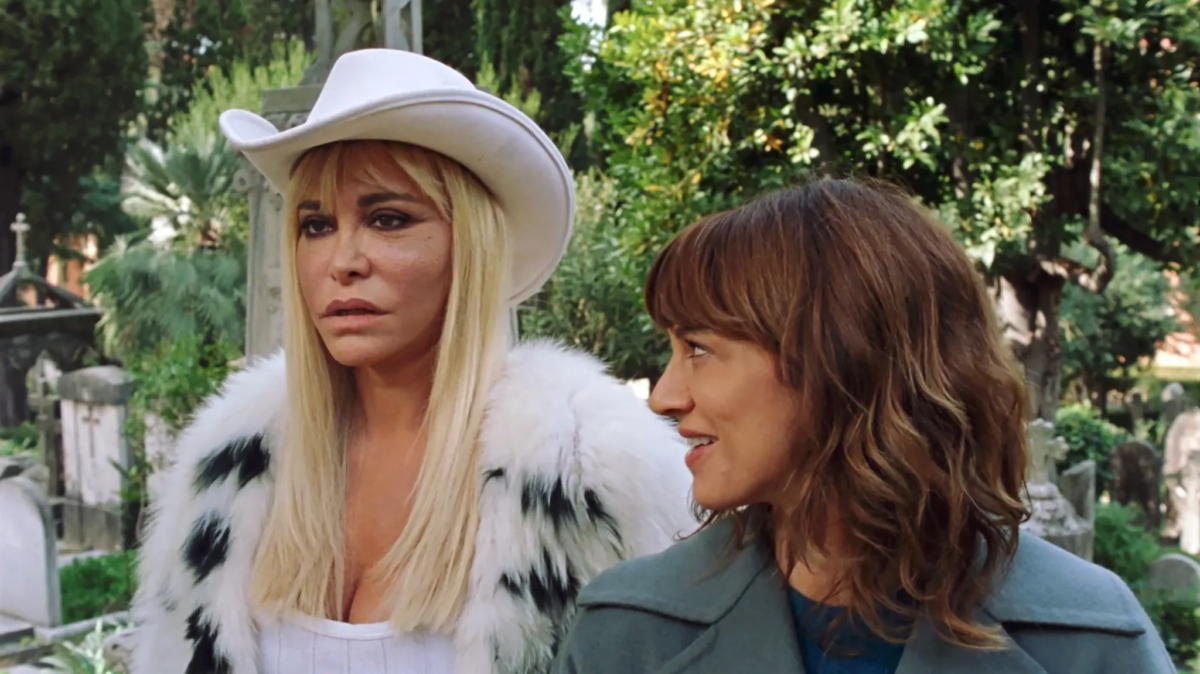
ZOMERGAST: TIZZA COVI
Al sinds hun opgemerkte doorbraakfilm La pivellina (2009) onderzoekt Tizza Covi samen met haar partner in werk en leven Rainer Frimmel het grensgebied tussen leven en acteren dankzij hun hybride stijl waarin documentaire en fictie elkaar overlappen en uitdagen. Zo ook in hun laatste film Vera (2022) die vorig jaar nog op het filmfestival van Venetië in première ging en waarin het duo Vera (dochter van berucht Italiaans cultacteur Giulano) Gemma volgt in haar poging een leven en carrière uit te bouwen in de schaduw van haar bekende vader. De thematische verwantschap met het Zomerfilmcollege moge duidelijk zijn; leven als acteren of vice versa en de schaduw die het verleden van de Italiaanse cinema tot op heden voor zich uitwerpt.
“Wij zeggen altijd dat elke persoon in de wereld in staat is zichzelf te spelen.” vatte Covi het in een interview met Nick Pinkerton zelf samen. Reden genoeg dus om haar uit te nodigen deze en zo veel andere thema’s bij de screenings van hun films toe te komen lichten.
Vrijdag 14 juli
- 19u30 Vertoning La pivellina (Tizza Covi & Rainer Frimmel, 2009) 100″ + nagesprek met Tizza Covi
Zaterdag 15 juli
- 19u30 Vertoning Vera (Tizza Covi & Rainer Frimmel, 2020) 115′ + nagesprek met Tizza Covi
PRAKTISCH
Inschrijven kan via de knop ‘koop tickets‘ bovenaan deze bladzijde. Je kunt tickets boeken om een of twee hoofdthema’s de volledige week te volgen. Er is ook een optie om aparte lezingen en vertoningen te boeken, deze tickets zijn op een latere datum te reserveren op de site van De Cinema. Je kunt je inschrijven op onze nieuwsbrief om op de hoogte te blijven, en hou ook onze Facebookpagina en Instagram in de gaten.
De twee hoofdthema’s vinden afwisselend in de voor- of namiddag plaats, met telkens een filmvertoning gevolgd door een koffiepauze en een lezing. De avondvertoningen zijn voor alle deelnemers toegankelijk. De lezingen binnen het thema LA LOTTA CONTINUA zijn Engels gesproken.
Het Zomerfilmcollege brengt filmliefhebbers in contact met gerenommeerde filmspecialisten uit binnen- en buitenland, maar ook met films uit de collectie van CINEMATEK en andere filmarchieven die zelden of nooit op het witte doek vertoond worden.
From July 9 to 15, we expect you back in Antwerp for ZOMERFILMCOLLEGE! For seven days we will immerse ourselves in two film historical themes, through fifteen or so lectures and some twenty film screenings.
Filmmakers have thousands of secrets, ZOMERFILMCOLLEGE lets you in on them!
LA LOTTA CONTINUA: Italian cinema in the 1970s
Political cinema is often defined too narrowly – reduced to the frontal depiction of specific social issues, dramatic conflicts, or historic events. In the case of Italian cinema, such a reduction is impossible. In all genres – from art and experimental films through to horror and comedy – political themes of power, gender, class, contestation and resistance are the everyday stuff of living, loving, labouring and struggling. In these often highly stylised narratives, workers’ strikes, police raids and guerrilla actions are freely mixed with conspiracy thriller plots, murder mysteries, erotic farce, and epic invocations of ancient myth.
Moreover, whereas other contemporary European histories are sometimes defined by big events such as the much-mythologised “May ‘68” in France, Italy in the 1970s is often described in the complex curve of a “long ‘68” or a “creeping May” that runs all the way from the mid ‘60s to the early ‘80s. Yet another popular term, the “Years of Lead”, underlines a period in Italy from the late ‘60s to the end of the ‘80s in which terrorism and State violence played a particularly widespread and determining role.
Like in other parts of the world during that time, the path of Italian politics cannot be prised away from the broader ‘lifestyle’ changes wrought, unequally throughout the population, by modernity, consumerism, and the Utopian (sometimes anarchistic) visions ignited by the counter-culture. Italian cinema sits precisely at the intersection of national newspaper headlines and imaginary projections, individual stories and collective struggles. From one film to the next, it continually reinvents and reshapes the very terrain of ‘the political’.
Sunday, 9 July
- 14h30 Screening Giù la testa (Sergio Leone, 1971) 157′ + lecture The Boomerang Genres: What Italian Cinema Did to Epic Westerns and Horror-Thrillers (Adrian Martin)
- 20h30 Screening Profondo rosso (Dario Argento, 1975) 127′ [DCP courtesy of CSC-Cineteca Nazionale (Rome)]
Monday, 10 July
- 09h30 Screening La prima notte di quiete (Valerio Zurlini, 1972) 132′ + lecture Disengagement and Disenchantment: Valerio Zurlini’s Unique Sensibility (Cristina Álvarez López & Adrian Martin)
Tuesday, 11 July
- 14h30 Screening Padre padrone (Paolo Taviani & Vittorio Taviani, 1977) 113 + lecture Re-imagining Rossellini: Ermanno Olmi and Paolo & Vittorio Taviani in the 1970s (Pasquale Iannone)
- 19h30 Screening L’albero degli zoccoli (Ermanno Olmi, 1972) 186′
Wednesday, 12 July
- 9h30 Screening Pasqualino Settebellezze (Lina Wertmüller, 1975) 115′ [DCP courtesy of CSC-Cineteca Nazionale (Rome)] + lecture Down and Dirty: The Dark Side of Italian Comedy in the 1970s (Pasquale Iannone)
Thursday, 13 July
- 14h30 Screening Nel nome del padre (Marco Bellocchio, 1971) 109′ [print courtesy of CSC-Cineteca Nazionale (Rome)] + lecture The Ideologue and the Technocrat: Marco Bellocchio’s Surreal Vision (Cristina Álvarez López)
- 19h30 Screening Anna (Alberto Grifi & Massimo Sarchielli, 1975) 225′ [DCP courtesy of CSC-Cineteca Nazionale (Rome)]
Friday, 14 July
- 09h30 Screening Gli appunti di Anna Azzori (Constanze Ruhm, 2020) 72′ + lecture Found and Lost in the Nets of Video: Anna (Adrian Martin)
Saturday, 15 July
- 14h30 Screening Salomè (Carmelo Bene, 1972) 76′ [DCP courtesy of CSC-Cineteca Nazionale (Rome)] + lecture A New Life, Without Signification’: Carmelo Bene’s Salomè (Cristina Álvarez López)
JEAN RENOIR: Everything that happens in life, can happen in a show
Jean Renoir was, of course, the son of the famous impressionist painter Pierre-Auguste, and the colors of his father’s paintings (and those of his colleagues) can indeed be found in his color films. Yet it is another art form that would have the greatest influence on Renoir: the theater. His fascination for the artificial and the theatrical would always be an important part of his work, from the very beginning, even though his early work was marked by a penchant for realism. The tension between Renoir’s tendency towards realism and his love for the theatrical is at the heart of his cinema.
He is the master of the ‘mise en abyme’, steering his films from fiction (often the theater or cinema, but also social hypocrisy) to reality (life); only to reveal that behind that reality lies another fiction. Renoir’s melancholy vision recalls another reverie on transience disguised as a Technicolor ode to the world of theater, Vincente Minnelli’s The Band Wagon: “Everything that happens in life, can happen in a show …”
The roundabout dance of theater and reality is the driving force in Renoir’s oeuvre, but by no means the only ‘pas de deux’. Comedy and drama, planning and improvisation, love and friendship, nature and culture, chance and fate, truth and falsehood… His cinema is one of contradictions, of layering, not of arrogant moral self-assurance. Renoir is understanding of his characters, no matter how wrongly they behave. As he himself echoed it from the mouth of Octave in La Règle du jeu: “Everyone has their reasons.” It is partly this attitude that makes Renoir one of the greatest artists of the 20th century.
Monday, 10 July
- 14h30 Screening La Chienne (Jean Renoir, 1931) 91′ + lecture (Tom Paulus)
- 19h30 Screening Boudu sauvé des eaux (Jean Renoir, 1932) 85′
Tuesday, 11 July
- 9h30 Screening Toni (Jean Renoir, 1935) 85′ + lecture (Tom Paulus)
Wednesday, 12 July
- 14h30 Screening The Woman on the Beach (Jean Renoir, 1947) 71′ + lecture Like a Mysterious Ball of Fire’: American Renoir and The Woman on the Beach (Adrian Martin)
- 19h30 Screening La Grande Illusion (Jean Renoir, 1937) 113′ + Partie de campagne (Jean Renoir, 1946) 40′
Thursday, 13 juli
- 09h30 Screening The River (Jean Renoir, 1951) 99′ + lecture (Tom Paulus)
Friday, 14 juli
- 14h30 Screening The Golden Coach (Jean Renoir, 1952) 103′ + lecture (Tom Paulus)
Saturday, 15 juli
- 09h30 Screening Le Déjeuner sur l’herbe (Jean Renoir, 1959) 91′ + lecture (Tom Paulus)
SPECIAL GUEST: TIZZA COVI
Ever since their remarkable breakthrough film La pivellina, (2009) Tizza Covi has, together with her partner in life and filmmaking Rainer Frimmel, explored the blurred lines between living and acting through a hybrid style wherein documentary and fiction overlap and challenge each other. In their latest film Vera (2022), which premiered last year at the Venice Film Festival, the duo follows Vera Gemma, daughter of notorious Italian cult actor Giulano Gemma, as she attempts to build a career and life out from under the shadow of her famous father. The thematic kinship with this year’s Zomerfilmcollege is glaringly obvious; living as acting or vice versa and the shadow of the past that Italian cinema has been dragging behind itself up until today.
“We always say that every person in the world is able to play himself,” Covi summarized their approach in an interview with Nick Pinkerton. Enough reasons to invite her to discuss and elaborate on these and many more topics after the screening of two of their films.
Friday, 14 juli
- 19h30 Screening La pivellina (Tizza Covi & Rainer Frimmel, 2009) 100″ + aftertalk with Tizza Covi
Saturday, 15 juli
- 19h30 Screening Vera (Tizza Covi & Rainer Frimmel, 2020) 115′ + aftertalk with Tizza Covi
PRACTICAL INFO
You can register via the ‘get tickets‘ button at the top of this page. You can book tickets to attend one or two of the main modules throughout the week. There is also an option to book tickets for separate lectures and screenings; these tickets can be reserved at a later date on the website of De Cinema. To stay informed, keep an eye on this website, our Instagram account and our Facebook event.
Both modules will take place alternately in the morning and the afternoon. The evening sessions can be attended by all participants. LA LOTTA CONTINUA will be entirely English spoken.
For further questions, feel free to contact us!
Zomerfilmcollege brings cinephiles into contact with renowned scholars and critics, as well as with archival prints that are rarely or never shown on the big screen.
